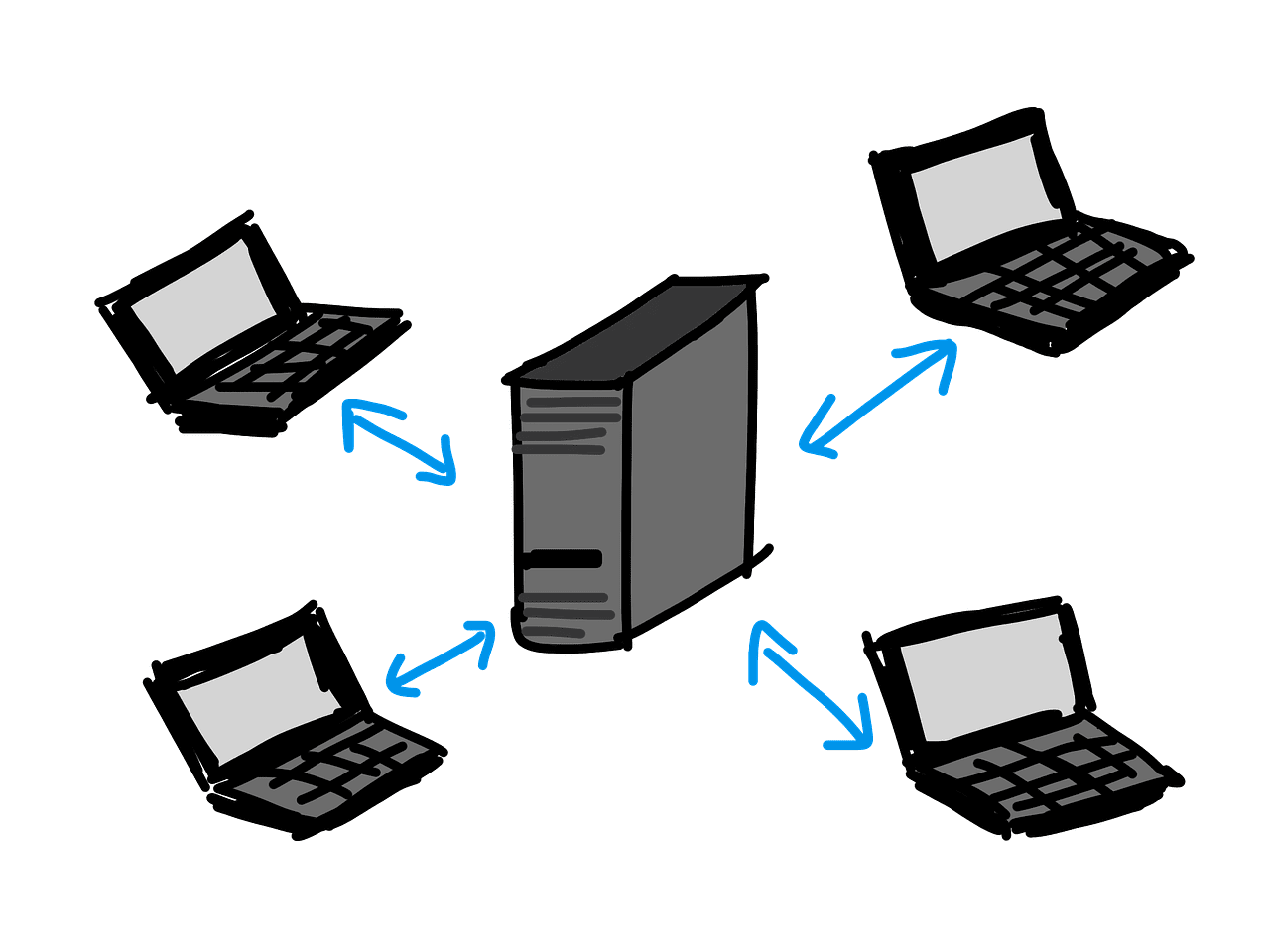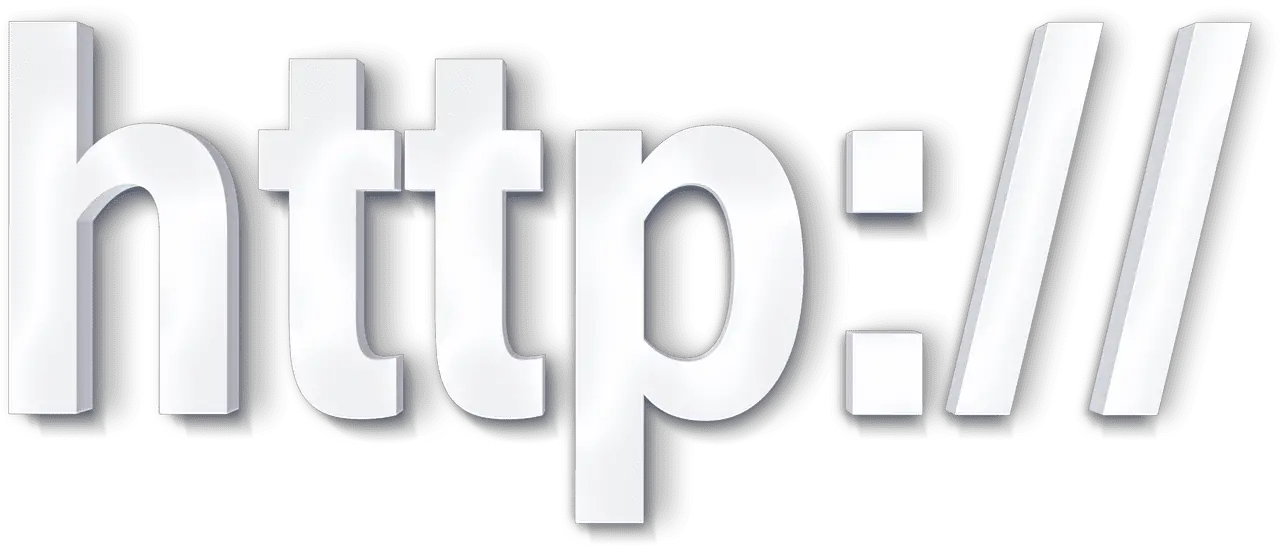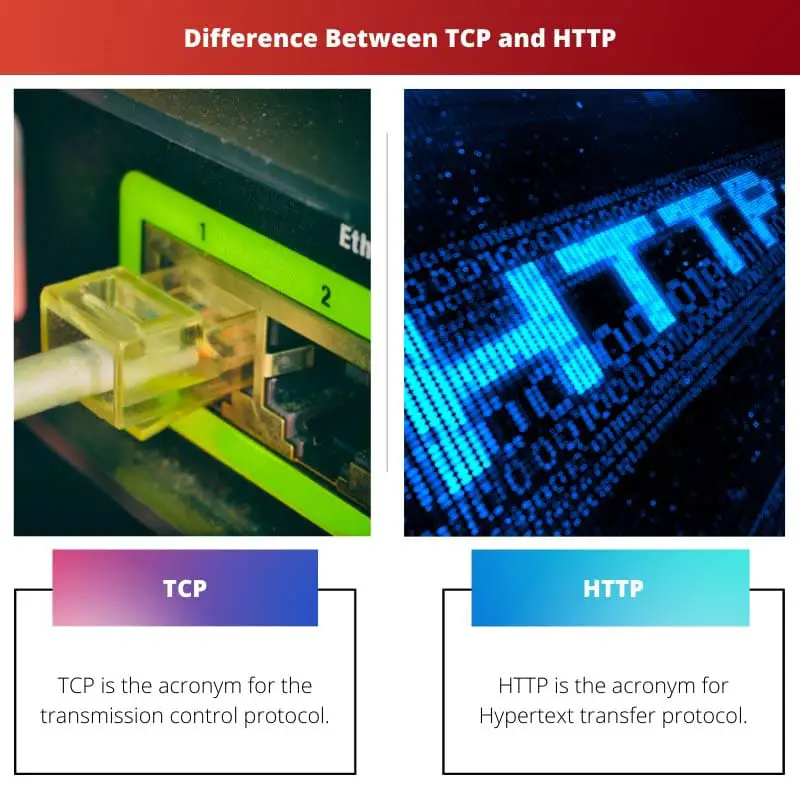In today’s world, everything is digitized, and it makes our life much easier and simpler. Living and enjoying all the digital comforts is all we do. We also have to understand and know the terminologies that are used clearly.
Especially internet is a huge international network that is more vast than what our brain can imagine. There are a lot of extensions, protocols, and several other terms we use.
Key Takeaways
- TCP (Transmission Control Protocol) is a transport layer protocol for reliable data transmission. At the same time, HTTP (Hypertext Transfer Protocol) is an application layer protocol used for communication between web servers and clients.
- TCP ensures that data is delivered reliably and in order, while HTTP provides rules for formatting and transmitting web pages and handling user requests and responses.
- TCP operates at a lower level than HTTP, as it is responsible for reliable data delivery over the network. In contrast, HTTP is specifically designed for communication between web servers and clients.
TCP vs HTTP
TCP (Transmission Control Protocol) is a type of protocol used for the transfer of data. Three-way communication is supported by TCP. HTTP (Hypertext Transfer Protocol) is a type of protocol used to establish communication among servers and web pages. HTTP uses 80 port number to access web resources.

TCP stands for transmission control protocol which recognizes and establishes a connection until the data at one end securely reaches the data at the other end.
The main job of this protocol is to divide or break down the transferred data into small packets. It ensures that the data packets are sent to the transport layer.
HTTP stands for Hypertext transfer protocol, and it is one of the most frequently and vastly used computer protocols.
When you use this protocol while browsing the internet, it helps you search and provides you with the resources and documents you are looking for. This protocol helps the user to browse and fetch information.
Comparison Table
| Parameters of Comparison | TCP | HTTP |
|---|---|---|
| Abbreviation | TCP is the acronym for the transmission control protocol. As the name suggests, it takes care of the transmission of data from one end to the other. | HTTP is the acronym for Hypertext transfer protocol, and it helps in giving the user the fetched resources and documents from the web. |
| Purpose | TCP is an interface protocol that activates the data transmission process between the server and the client. | HTTP is the ultimate protocol that enables the user to search all the resources and obtain the information they need. |
| Port | TCP does not require any port to do its job. | HTTP makes use of the port with number 80 to fetch the resources from the web. |
| Communication | TCP operates as a three-way communication protocol. | HTTP is a single-way protocol. |
| Speed | TCP operates relatively slow. | HTTP operates at a much higher speed and does the process immediately. |
What is TCP?
The transmission control protocol is used with the combination of IP so that the connection between the server and the client is established and the process is intact. The process by which the TCP works is as follows.
When TCP is invoked, it identifies the message, and the very first step is establishing a 3-way communication which is commonly said that the 3-way handshake is made.
The source initially sends the request packet to the target to start the communication procedure. The destination server, in return, sends an ACK packet as a response to emphasize that it agrees and accepts the communication.
Now the data that is to be transmitted is decided into several small packets. Each packet is transmitted to the destination server. When these packets are exposed to being transmitted, they have to tackle to surpass a series of security gateways before it reaches the final target server.
At the other end of the destination server, the packets into which the data was initially divided are again assembled to form the meaningful message, information, or data to be transmitted.

What is HTTP?
The operation of the world wide web has been simplified and eased entirely by the use of the hypertext transfer protocol. These protocols include loading web pages and finding the matching resources and the documents you need.
Transferring and identifying information between the networked devices is the function of this protocol. This is a single way of communication in which the user sends a request, and the server identifies and responds to the request.
To load a website on the web page, you need to call this protocol by typing it along with the search URL.
Along with this protocol, a set of defined data is sent to the web browser so that it can clearly process the data and provide us with the requested data.GET and POST are the frequently used HTTP methods.
The GET method specifies that an immediate response is expected, whereas the POST specifies that the user is producing some information to the server.
There are two main parts to the operation of HTTP, the HTTP request and the HTTP response. The user or the client makes the HTTP request, and the response is the information the server provides the client with.

Main Differences Between TCP and HTTP
- TCP can function with the help of TCP 40, whereas HTTP does not depend on any authentication.
- TCP is responsible for establishing a session connection, whereas HTTP is responsible for establishing a link communication.
- TCP is found in the IP address pin, but the HTTP appears in the search URL.
- TCP is best suited for data transfer, whereas HTTP is suitable to operate on small processes like browsing web pages.
- The operation process of TCP takes longer than the process of operation of HTTP.


The section on HTTP provides a clear understanding of how the protocol operates and its role in retrieving resources and documents from the web. It’s very informative.
I agree, the article offers a comprehensive explanation of HTTP’s function in web communication.
The article effectively conveys the importance of HTTP in simplifying the operation of the world wide web.
The function of HTTP in identifying and transferring information between networked devices is well articulated in the article. It deepens the understanding of this protocol.
I agree, the article provides clear insights on the operation of HTTP and its significance in web communication.
The detailed explanation of TCP and HTTP in the article is very enlightening and helps in understanding the functionality of these protocols.
The article effectively distinguishes between TCP and HTTP, providing valuable insights into their functionalities.
I found the comparison between TCP and HTTP to be very informative and adds depth to the understanding of these protocols.
The article’s explanation of the purpose and communication process of both TCP and HTTP is precise and valuable for understanding their roles in data transmission and web communication.
I agree, the article offers detailed explanations of TCP and HTTP that provide a clear understanding of their significance in data communication.
The detailed explanation of TCP and HTTP in the article is very informative and helps in understanding the functionality of these protocols.
The article provides a very clear explanation of the difference between TCP and HTTP, their functions, and the way they operate. It’s very helpful for someone who wants to understand more about these protocols.
Totally agree, the article is very informative and well-structured.
I found the explanation on TCP and HTTP to be very detailed and interesting.
I appreciate the detailed explanation of how TCP establishes a connection and the process of data transmission between the server and client. It’s well written and easy to comprehend.
I found the explanation of TCP’s 3-way communication and packet transmission process to be enlightening.
The article does a great job of breaking down the technical aspects of TCP for readers who may not be familiar with it.
The article effectively covers the key aspects of HTTP and its role in loading web pages and retrieving resources. It’s a great resource for understanding this protocol.
I found the explanation of HTTP’s operations and communication process to be very informative and enlightening.
The comparison table provided in the article is very useful because it summarizes the differences between TCP and HTTP in a clear and concise manner.
I agree, the comparison table makes it easier to understand the key features of TCP and HTTP.
The speed comparison between TCP and HTTP was especially interesting. The article does a great job of explaining their differences in speed.
The information on the speed of TCP and HTTP is valuable and enhances the understanding of these protocols.
I found the speed comparison to be very insightful and adds value to the comparison between TCP and HTTP.
The detailed explanation of TCP’s 3-way handshake and the assembly of data packets provides a comprehensive insight into the protocol’s functioning.
The article does a great job of describing the step-by-step process of TCP’s data transmission.